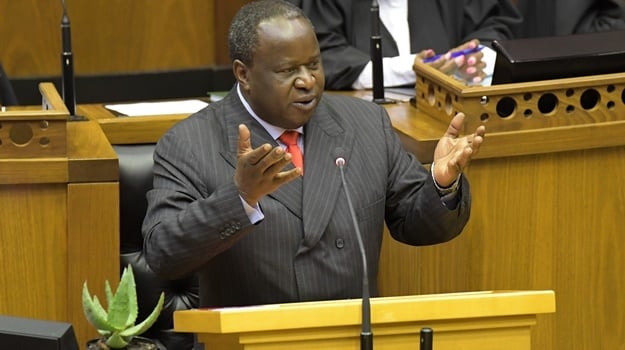
One of the striking announcements in last week’s State of the Nation Address was that government intends to set up a sovereign wealth fund.
This is not a new idea. In fact, it has been mooted for at least a decade now. And yet, while President Cyril Ramaphosa apparently wants to move ahead with creating a new fund, practically every question that matters in this process remains unanswered. What will the fund’s purpose be? Where will the money to create and grow it come from? How big will it be relative to our fiscal revenue and economy? What will the investment mandate and portfolio look like?
Initial answers to these questions may well arrive in next week’s Budget speech. However, it is difficult to see how, absent a major increase in political will in favour of restructuring our troubled state-owned enterprises or an unexpected boost from commodity prices and production levels, a South African sovereign wealth fund would even be feasible.
South Africa’s choice is between the two most popular sovereign wealth fund models. The first type, which accounts for around two-thirds of the roughly 80 sovereign wealth funds in operation worldwide today, is “commodity-based funds”. The details differ from fund to fund, but the basic idea is that a share of the finite and inherently volatile fiscal revenue from production of natural resources – taxes and royalties on private mining and oil companies or the profits of state-owned counterparts – is placed in a long-term investment fund.
These funds then typically invest outside of the domestic economy and commodity sector, thereby diversifying the country’s asset base (its “sovereign wealth”) and establishing a new stream of revenue generated on those assets. If spending from the fund is based on long-run investment returns, the sovereign wealth fund becomes an intergenerational endowment: it can outlive the economic life of the commodities used to establish it. This is the model pursued with significant success in economies as diverse as Norway, Alaska, Chile and Abu Dhabi.
This all sounds particularly applicable to South Africa, one of the world’s largest commodity producers. However, a deeper look reveals an inconvenient truth: we should have done it a century (or more) ago. The time to establish a commodity fund is when our commodity revenues are booming and occasionally delivere unanticipated windfalls that cannot be sensibly spent or invested.
Today, our commodity wealth and revenues are in decline. Chronic budget deficits suggest that there is no surplus or windfall commodity revenues to be set aside in a commodity-based sovereign wealth fund. Doing so would simply increase our deficit and the cost of servicing it. Ramaphosa mentioned during SONA that South Africa’s new sovereign wealth fund would be “a means to preserve and grow the national endowment of our nation” – but the point is moot if indeed that endowment has already largely been spent.
A strategic or developmental fund
Perhaps Ramaphosa had in mind the second major kind of sovereign wealth fund, which is more “strategic” or “developmental” in purpose. Rather than invest in a global, diversified portfolio, a minority of sovereign wealth funds pursue domestic investments aimed at developing targetted sectors of the economy, providing financing for infrastructure and other developmental priorities. These funds are similar to development banks, except that they typically take equity positions – and more often than not have a significant impact on how the entities they invest in are managed.
What is most intriguing about funds of this strategic variety is that they go where private capital fears to tread, due to perceptions of risk or the length of the investment horizon. At the same time, they are public entities doing things the government itself cannot or will not do through the normal fiscal process: investing for long term and, critically, enforcing sometimes ruthless commercial discipline wherever they invest.
The case in point is Temasek Holding, one of several Singaporean state funds and the global poster child for strategically orientated sovereign wealth funds. In the mid-1970s, Temasek was established to hold and manage the assets of several state-owned enterprises, including the public telecommunication company, the national airline, and ports and naval infrastructure. At the time – this should not be hard to imagine for South African readers – these entities were poorly managed, over-staffed and woefully inefficient.
In the decades that followed, Temasek oversaw a staggering reversal of fortunes amongst key companies in its portfolio. Many were ultimately listed on the Singaporean stock exchange, with their initial public offerings yielding a significant return on investment for Temasek and its owner, the Singaporean state. Today, most of Temasek’s graduate firms are thriving, multinational businesses that have contributed greatly to the island nation’s much-admired economic miracle over the past four decades. Temasek uses the proceeds for its sales to reinvest in new firms and even uses the strength of its balance sheet and its AAA-rated credit rating to issue bonds and leverage its capital.
Many countries have tried to imitate the Temasek model. Almost none of succeeded. They have learned that the key to Temasek’s success was not the mere creation of a state-owned fund to hold the assets of poorly performing public enterprises. Any country can do that at the stroke of its leaders’ pen. The real reason what Temasek succeeded was that it was expected to invest like a commercial manager – and was empowered to stay the course despite political and public opposition to the painful restructuring and reform it forced upon its investees.
Could a new South African sovereign wealth fund be the vehicle through which to restructure our growing list of failing state-owned enterprises? Perhaps, but this would require, amongst other things, a commitment to commercial decision making, reform and, frankly, bold political action around a range of state-owned enterprises that has proved elusive, at best, from the current government.
* Dr. Malan Rietveld is an independent economist who has advised sovereign wealth funds and their host governments around the world.




 Publications
Publications
 Partners
Partners











